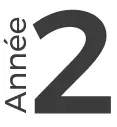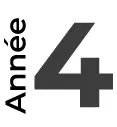In 2017, LACT chose to provide training in the systemic approach 100% online. Among online psychology training courses, LACT is a pioneer. Discover the tools of this innovative approach.
ONLINE OPEN HOUSE
ONLINE OPEN HOUSE
August 28, 2024
from 6:30 p.m. to 8:30 p.m.
MEET US
Come and discover our training courses in strategic systemic approach, hypnosis and systemic coaching. You will meet the trainers and be able to talk with them!
" + details + "
" + ""; pc_confirmation.style.display = 'block'; var mp = document.querySelector('input[name="mp"]'); mp.value = '0'; } else { form.querySelector('._form- content').style.display = 'inline'; pc_confirmation.style.display = 'none'; } var hideButton = document.getElementById('hideButton'); , function() { var submitButton = document.querySelector('#_form_3_submit'); submitButton.disabled = false; submitButton.classList.remove('processing'); ]'); mp.value = '1'; window.location.href; }); const vgoAlias = typeof visitorGlobalObjectAlias === 'vgo': visitorGlobalObjectAlias; vgoAlias]; if (email && typeof visitorObject !== 'undefined') { visitorObject('setEmail', email); else if (typeof(trackcmp_url) != 'undefined' && trackcmp_url) { // Site tracking URL to use after inline form submission. _load_script(trackcmp_url); } if (typeof window._form_callback !== 'undefined') window._form_callback(id); }; window._load_script = function(url, callback, isSubmit) { var head = document.querySelector('head'), script = document.createElement('script'), r = false; var submitButton = document.querySelector('#_form_3_submit'); script.charset = 'utf-8'; script.src = url; if (callback) { script.onload = script.onreadystatechange = function() { if (!r && (!this.readyState || this.readyState == 'complete')) { r = true; callback(); } }; } script.onerror = function() { if (isSubmit) { if (script.src.length > 10000) { _show_error("3", "Sorry, your submission failed. Please shorten your responses and try again."); } else { _show_error("3", "Sorry, your submission failed. Please try again."); } submitButton.disabled = false; submitButton.classList.remove('processing'); } } head.appendChild(script); }; (function() { if (window.location.search.search("excludeform") !== -1) return false; var getCookie = function(name) { var match = document.cookie.match(new RegExp('( ^|; )' + name + '=([^;]+)')); return match ? match[2] } var setCookie = function(name, value) { var now = new Date(); var time = now.getTime(); var expireTime = time + 1000 * 60 * 60 * 24 * 365; now.setTime(expireTime); document.cookie = name + '=' + value + '; + ';path=/; Secure; SameSite=Lax;'; var addEvent = function(element, event, func) { if (element.addEventListener) { element.addEventListener(event, func); element['on' + event]; element['on' + event] = function() { oldFunc.apply(this, arguments); func.apply(this, arguments); form_to_submit = document.getElementById('_form_3_'); var allInputs = form_to_submit.querySelectorAll('input, select, textarea'), tooltips = [], submitted = false; var getUrlParam = function(name) { if (name.toLowerCase( ) !== 'email') { var params = new URLSearchParams(window.location.search); return params.get(name) || false; } // email is a special case because a plus is valid in the email address var qString = window.location.search; if (!qString) { return false; } var parameters = qString.substr(1).split('&'); for (var i = 0; i')); } } else if (elem.tagName == 'SELECT') { var selected = true; if (elem.multiple) { selected = false; for (var i = 0; i 31 && (charCode 57) && charCode !== 8) { e.preventDefault(); } }); }; var showPhoneInputError = function(inputId) { var errorMessage = document.getElementById("error-msg-" + inputId); var input = document.getElementById(inputId); errorMessage.classList.add("phone-error"); errorMessage.classList.remove("phone-error-hidden"); input.classList.add("phone-input-error"); }; var _form_serialize = function(form){if(!form||form.nodeName!=="FORM"){return }var i,j,q=[];for(i=0;iInteractivity is at the heart of teaching
All courses offered by LACT are taught online via the Zoom platform, according to a precise timetable provided upon registration. This approach allows direct contact with trainers and other students in the class. Classes are interactive and live. All training materials (slides, course replay videos, bibliography, personal calendar, glossary, etc.) are freely accessible on a personalized Moodle space.
Trainers use a teaching approach combining theory and practice, with slides, videos and group or sub-group exercises. A chat is available to ask questions and encourage discussions. Interactivity is at the heart of the system, whether in plenary sessions or in small groups. Practical exercises are regularly offered for an enriching educational experience.
Video is widely used, with lectures available for replay, as well as patient videos for inter-session work. The exercises and assessments are validated for obtaining certificates and diplomas. Recurring appointments follow the same process, with recording for later reference.
“I liked the richness of the content, the knowledge and the contribution of the international speakers. The Zoom platform operates very smoothly and allows you to meet virtually. Individual supervision is educational and allows you to progress more quickly.”
The advantages of distance learning
“It’s a very interactive, online training. Great for those who live on the other side of the world! The very high quality speakers and the team are very positive points.”
“The web conference format is really effective for carrying out this training alongside your professional activity and it allows you to follow the courses even on the move.”
“The training offers the possibility, even remotely, of carrying out exercises in small groups or large groups as if we were all face to face. The exercises carried out during the courses make it possible to measure the progress made during the assimilation of the concepts presented.”
Distance learning, with the advent of digital technologies, has established itself as an essential learning method offering a multitude of advantages for both students and professionals seeking continuous development.
Flexibility and accessibility of online training
One of the greatest advantages of distance learning is its ability to break geographical and temporal barriers. Learners can access course materials from any location as long as they have an Internet connection. This flexibility allows everyone to organize themselves according to their schedule, thus facilitating the reconciliation between studies, professional life and personal commitments.
Online training allows for personalization of learning
Online training offers the possibility of personalizing the educational path according to the specific needs of the learner. Thanks to advanced educational technologies, it is possible to adapt the speed of progression, learning style and even content, thus providing a tailor-made learning experience.
Online training: unrivaled cost-effectiveness
In general, distance learning is more economical than traditional face-to-face training. Savings on travel costs, accommodation costs and sometimes tuition fees themselves make education more accessible to more people.
Online training: diversity and richness of programs
Distance education provides access to a wide range of programs and specializations that may not be available locally. This gives learners the opportunity to explore unique or cutting-edge areas of study, taught by renowned institutions located in other countries or regions. LACT offers courses taught by international speakers , all recognized specialists in the approach.
Development of digital skills
Navigating an online learning environment requires and reinforces digital skills, which have become essential in today's professional world. Students learn to use various digital tools and platforms, work collaboratively remotely, and communicate effectively online. LACT offers training in the Moodle and Zoom platforms at the start of all courses.
Online training: interaction and network
Contrary to popular belief, distance learning can offer rich opportunities for interaction. Discussion forums, virtual group work, and webinars facilitate the exchange of ideas and practices among students and teachers from diverse geographic and cultural backgrounds. This collaborative dimension enriches the learning experience and contributes to the development of an extended professional network.
Online training: the path to educational and professional opportunities
Distance learning is a learning pathway that combines flexibility, personalization and accessibility, opening doors to a range of educational and professional opportunities. It represents a tailored response to the challenges of education in the contemporary world, providing a platform for the acquisition of key knowledge and skills in an increasingly digitalized economy.
Interactivity: like in class!
Zoom classes have revolutionized the way education and training are delivered, incorporating an interactive dimension that transcends the physical confines of traditional classrooms. This videoconferencing platform has been able to adapt to the evolving needs of education, by offering features that promote active participation and effective collaboration between teachers and students, despite the distance.
Online training: active participation
Zoom allows participants to actively engage with tools like virtual hand raising, real-time polls, and Q&A sessions. These features encourage students to participate in discussions, ask questions and share their ideas, making learning more dynamic and interactive.
Online training: work in small groups
Breakout rooms offer the possibility of dividing a large class into small working or discussion groups, simulating the experience of in-person tutorials or workshops. This allows students to collaborate on projects, exchange ideas, and receive more personalized attention from the teacher.
Online training: screen sharing
The screen sharing feature makes it easy to present content, illustrate concepts and demonstrate procedures in real time. Teachers can annotate directly on their presentations or other materials, making explanations more clear and engaging.
Online training: multimedia interaction
With Zoom, teachers can easily integrate multimedia resources into their lessons, such as videos, animations and interactive simulations. These resources enrich the learning experience, helping to illustrate complex concepts and making sessions more varied and stimulating.
Online training: instant feedback
Instant feedback features, such as applause or thumbs-up emojis, allow students to provide quick, non-verbal feedback to the teacher or classmates. This creates a livelier classroom atmosphere and helps maintain engagement.
Online training: Ease of access and review
Zoom lessons can be recorded with the participants' consent, giving students the opportunity to review the sessions at their own pace. This is particularly useful for revision, deepening complex topics or simply for those who were unable to attend live.
Online training: global interaction
Zoom eliminates geographic boundaries, allowing students from diverse regions and cultures to meet and interact. This diversity enriches class discussions, providing a multitude of perspectives and reflections on the topics covered.
Moodle, a platform dedicated to students
LACT chose the Moodle platform for students because Moodle stands out as an online learning platform that provides an enriched and personalized educational experience. By emphasizing flexibility, interaction and autonomy, it facilitates student engagement and contributes to their success in their online training courses. Moodle is an online learning management system LMS) widely recognized for its flexibility and ability to create a personalized and interactive learning environment. For students taking online courses, Moodle offers several significant benefits that enrich their educational experience and facilitate their academic success.
Personalizing the learning experience
Moodle allows extensive personalization of the learning path. Students can adjust settings according to their learning preferences, access varied educational resources and track their progress through intuitive dashboards. This adaptability helps make learning more effective and enjoyable.
Access to resources 24/7
One of Moodle's greatest strengths is the always-on access it provides to course materials, allowing students to work at their own pace, anytime and from anywhere. This availability promotes a self-directed learning approach and helps students better manage their personal and academic commitments.
Improved interaction and collaboration
Moodle integrates communication and collaboration tools such as discussion forums, wikis and shared glossaries, which encourage interaction between students and with teachers. These exchange spaces facilitate knowledge sharing, peer support and the construction of an online learning community.
Continuous evaluation and feedback
The platform offers various assessment methods, such as quizzes, online assignments and workshops, allowing students to receive regular feedback on their progress. These assessments provide valuable feedback that helps students identify their strengths and work on areas for improvement.
Access to a wide range of content
Moodle supports the integration of various content formats, including textual, audiovisual and interactive, making courses more dynamic and engaging. The ability to access a rich library of educational resources caters to different learning styles and enriches the educational experience. LACT students each have an account with access to course replays, PDFs, a bibliography, a dictionary, etc.
Autonomy in learning
With its monitoring and assessment features, Moodle empowers students to take control of their learning. They can set their goals, track their progress, and manage their time effectively, developing self-organization skills crucial for academic and professional success. The multiple choice assessments are made using the Moodle platform.
Support and Accessibility
Moodle is designed to be accessible, providing options to adapt the interface according to specific needs, including for students with disabilities. Additionally, the Moodle community offers a wide range of help resources and tutorials, ensuring constant support for users.
Train at LACT
LACT offers several live certified web training courses with 50 international trainers.
- Generalist systemic training
- DU in Relationship Clinic with the University of Paris 8
- Clinical Masters with specialization in psychopathology with Pr Nardone's CTS
- Systemic Coach Training
- Systemic training in relationship management with the University of Grenoble
- Online Ericksonian Hypnosis Training
References
- Baldwin, SA, Wampold, BE and Imel, ZE (2007). Untangling the alliance-outcome correlation: Exploring the relative importance of therapist and patient variability in the alliance. Journal of Consulting and Clinical Psychology, 75(6), 842-852.
- Benish, S.G., Quintana, S. and Wampold, B.E. (2011). Culturally adapted psychotherapy and the legitimacy of myth: A direct-comparison meta-analysis. Journal of Counseling Psychology, 58(3), 279-289.
- Bordin, E.S. (1979). The generalizability of the psychoanalytic concept of the working alliance. Psychotherapy: Theory, Research & Practice, 16(3), 252-260.
- Elliott, R., Bohart, AC, Watson, JC, & Greenberg, LS (2011). Empathy. Psychotherapy, 48(1), 43-49.
- Frank, J.D. (1973). Persuasion and healing: A comparative study of psychotherapy (2nd ed.). Baltimore: Johns Hopkins University Press.
- Gibson, P. (2023). Persuasion Principle. Strategic persuasion. Strategic science
- Grégoire Vitry, Claude de Scorraille, Claudette Portelli, Michael F. Hoyt, Redundant Attempted Solutions: Operative Diagnoses and Strategic Interventions to Disrupt More of the Same, Journal of Systemic Therapies, 10.1521/jsyt.2021.40.4.12, 40, 4, (12 -29), (2021).
- Nardone, G. and Balbi, E. (2008). The logic of therapeutic change. Karnac Books.
- Nardone, G. and Portelli, C. (2005b). Knowing Through Changing. The evolution of brief strategic therapy. Crown House.
- Nardone, G., & Salvini, A. (2007). Strategic dialogue. KarnacPublishing.
- Robson, D. (2023). The Expectation Effect. Cannongate. UNITED KINGDOM.
- Wampold, B.E. (2001). The great psychotherapy debate: Models, methods, and findings. Mahwah, NJ: Lawrence Erlbaum Associates.
- Wampold, B.E. (2015). How important are common factors in psychotherapy? An update. World Psychiatry, 14(3), 270-277.
- Wampold, BE and Imel, ZE (2015). The great psychotherapy debate: The evidence for what makes psychotherapy work (2nd ed.). New York, NY: Routledge.
To find out the prices, select the training that interests you
MAPPING OF ALL LACT TRAINING COURSES
AND STRATEGIC APPROACH
Prerequisites
_
general
Bachelor's degree
with or without
clinical experience
clinical
Bac +3
with
clinical experience
Bac +5
with
clinical practice
education
Bachelor's degree
with or without
teaching experience
Bac +3
with
teaching experience
BUSINESS
Bachelor's degree
with or without
coaching experience

LACT
CERTIFICATE -
FOUNDATIONS LEVEL
UNIVERSITY
DIPLOMA -
RELATIONSHIP
CLINIC AND
STRATEGIC
INTERVENTION -
with
Paris 8 University
DIPLOMA
-
MASTER
®
IN
STRATEGIC SYSTEMIC
LACT
CERTIFICATE –
EDUCATION
FUNDAMENTALS LEVEL
UNIVERSITY
DIPLOMA -
STRATEGIC
SYSTEMS APPROACH TO
EDUCATION
-
with
Paris 8 University
LACT
CERTIFICATE -
SYTEMIC
COACHING
FUNDAMENTALS LEVEL

LACT CERTIFICATE - PRACTICAL LEVEL
COACH
DIPLOMA ®

SYSTEMICIAN ® - RELATIONSHIP CLINICIAN ® DIPLOMA - ADVANCED LEVEL
CLINICAL MASTER®![]()
DIPLOMA MASTER HYPNOSIS
AND STRATEGIC APPROACH

general
Bachelor's degree
with or without
clinical experience
clinical
Bac +3
with
clinical experience
Bac +5
with
clinical practice
LACT
CERTIFICATE -
FOUNDATIONS LEVEL
UNIVERSITY DIPLOMA
RELATIONSHIP
CLINIC AND
STRATEGIC INTERVENTION
with Paris 8 University

MASTERS
®
DIPLOMA IN
STRATEGIC SYSTEMIC
BUSINESS
Bachelor's degree
with or without
coaching experience
education
Bachelor's degree
with or without
teaching experience
Bac +3
with
teaching experience
LACT
CERTIFICATE -
SYTEMIC
COACHING
FUNDAMENTALS LEVEL
LACT
CERTIFICATE –
EDUCATION
FUNDAMENTALS LEVEL
UNIVERSITY
DIPLOMA –
STRATEGIC
SYSTEMS APPROACH TO
EDUCATION
with Paris 8 University

PRACTICAL LEVEL CERTIFICATE
DIPLOMA
®

SYSTEMICIAN ® - RELATIONSHIP CLINICIAN ® DIPLOMA - ADVANCED LEVEL

CLINICAL MASTER®![]()
DIPLOMA MASTER HYPNOSIS





